‘The outbreak of War prevented the continuation of my studies. In 1942 I joined the resistance movement and took part in the Warsaw uprising and after its fall I was taken as prisoner of war to Stalag XB and then Oberlangen.’
Barbara Bojanowska
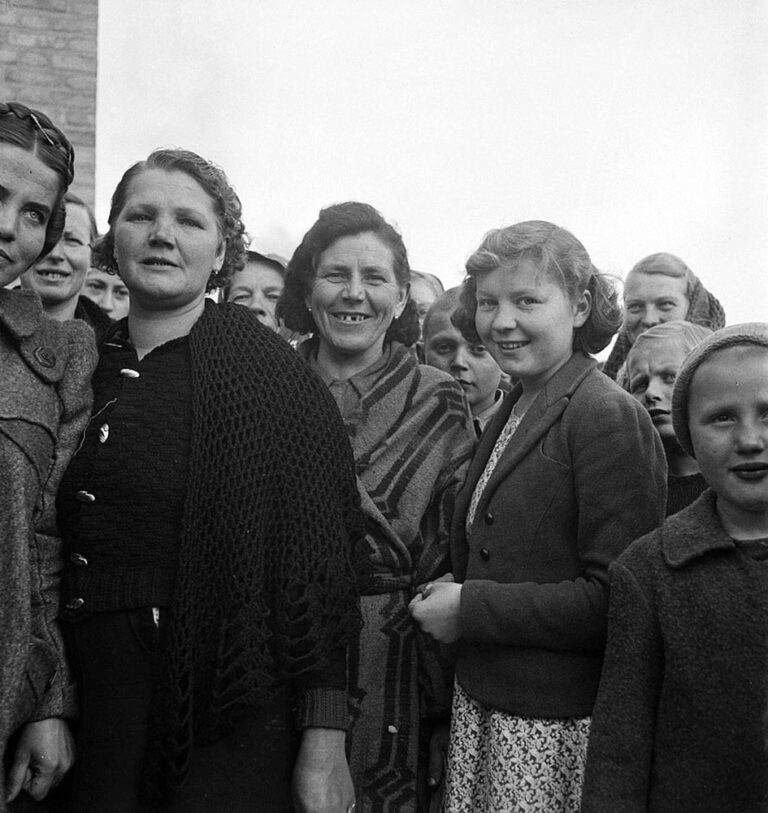
These personal reflections belong to Barbara Bojanowska, one of the many Polish refugees to find themselves in Britain after the Second World War. Barbara was born in Warsaw in 1920 and studied as a dancer in her youth. Her life was turned upside down by war. She was involved in the historic operation by the Polish Home Army to liberate Warsaw from German occupation and ended up in a Prisoner of War camp.
After coming to Britain in 1947, in 1951 she applied for a grant from the government to fund her passion, a qualification to teach dance.
‘Now that my son is grown up enough to be sent to a nursery school, I feel I may continue my studies to enable me to earn my living. My husband works in a bakery in London.’
Although the course did not receive funding, Barbara’s naturalisation certificate shows she went on to be a teacher.
Barbara is one of several thousand individuals whose important testimony has made it into our Polish Educational File records. What is remarkable about these records is in the process of applying for educational funds applicants recorded potted life histories, and these have been preserved in our collections.
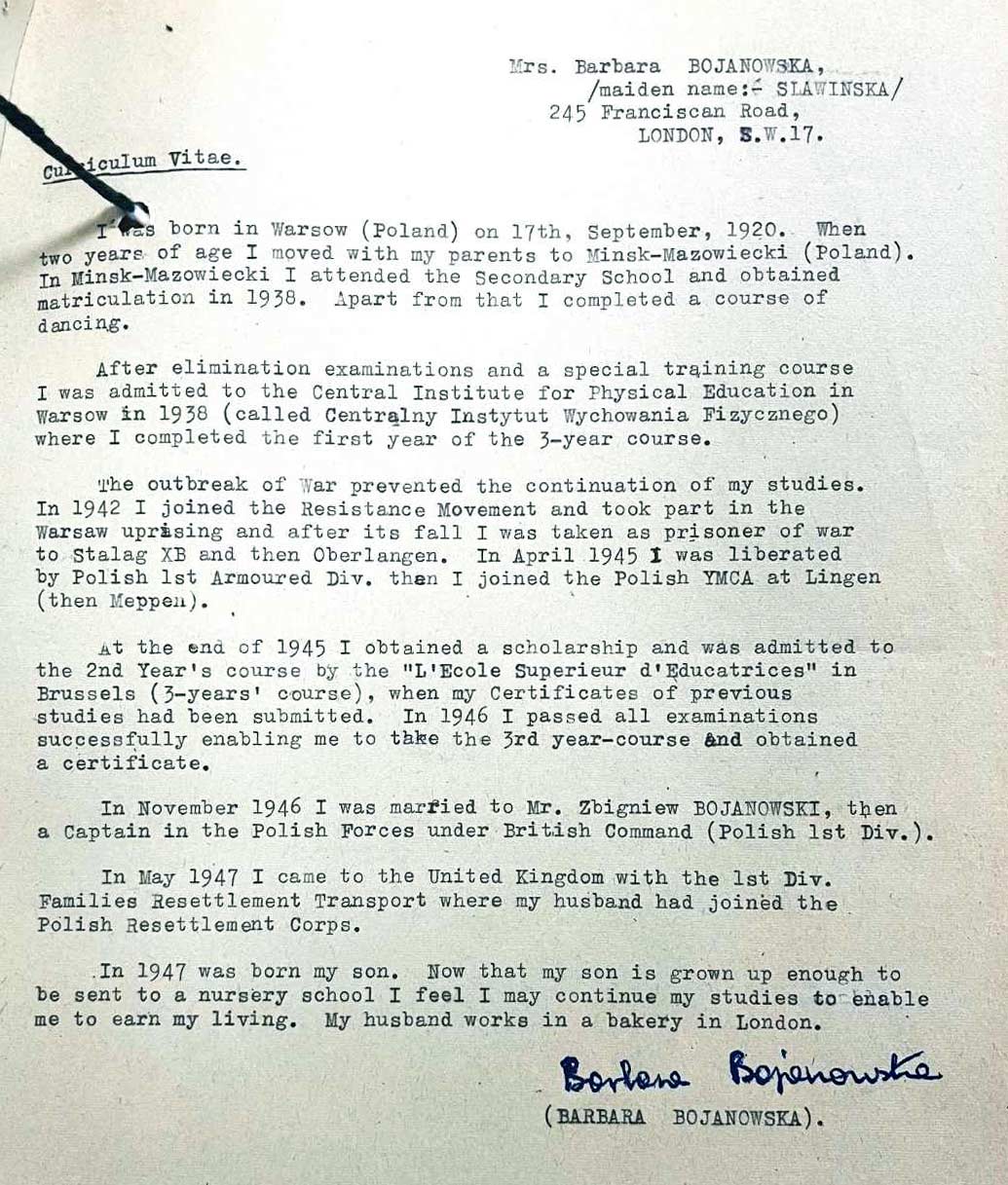
Staff at The National Archives have been cataloguing these records in more detail – allowing them to be searched on the catalogue by name for the first time. There are approximately 2,500 case files, with about 1,300 currently open and available to order. These will be updated with more records opened yearly, based on the date of birth.
Displaced Polish refugees
Why do we have these records?
During the Second World War many Poles had been forcibly displaced from their homes, after a dual invasion of Poland by Germany and the Soviet Union. In the process there were mass deportations to Siberia and an estimated 1.5 million Poles were taken and sent to labour camps. Some became prisoners of war, some were forced to join the German Army.
When Russia joined the Allies in July 1941, an amnesty allowed Poles to join a newly created Polish Army Division. Exiled women and children had a short window of opportunity to leave Russian territory to places of safety. The British government encouraged them to find temporary refuge in their colonies. Global efforts to support Polish refugees in locations from the Middle East to Africa resulted in the establishment of settlement camps where communities set up schools and churches to preserve their culture and continue their education.
As the post-war landscape became clearer, many Poles felt unsafe returning home to a communist regime, for some their homes were now outside Polish borders as Europe had been re-carved.
The Polish Resettlement Act
By 1947, the Polish Resettlement Act was introduced. This legislation offered British citizenship to over 250,000 Poles with military connections, and their relatives. This legislation helped Britain supplement its post-war workforce, and was Britain’s first mass immigration law. It is believed over 150,000 Poles ended up in the UK as a result of the Act. For more context read our blog on The displacement of Poles and their subsequent resettlement in the United Kingdom, 1939-1949.
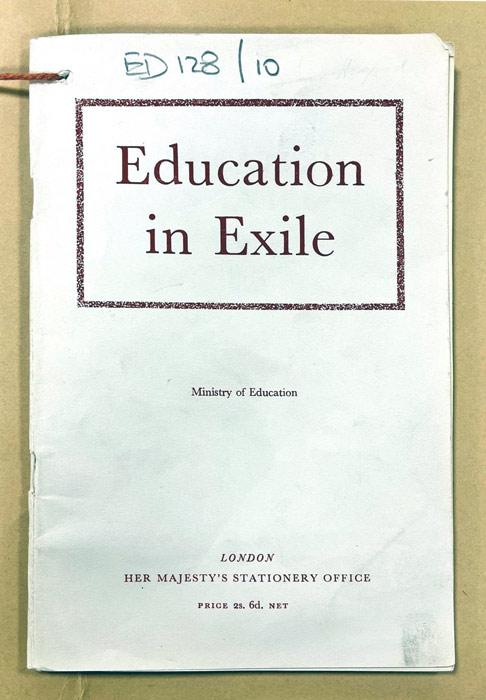
The Gater Committee
Initially, the education of Polish refugees was facilitated through the Polish government-in-exile in London, which created its own board of education. Specialist courses were created at certain universities, with Polish faculties at Edinburgh in medicine, Liverpool in architecture, and law at Oxford.
In 1947, the British government recognised the newly formed Polish communist government over the Polish government-in-exile, and at the same time the Gater Committee for the Education of Poles in Great Britain was created. It was designed to take over the responsibility of certain elements of the Polish Resettlement Act related to education. It was chaired by senior civil servant Sir George Gater. With a budget of £9 million, the committee was given the ‘responsible and rewarding task’ of ensuring children and adults had educational opportunities. Despite this, there was a cap on students supported by the funding and many applications were rejected.
A desire to learn
Education and skills building was seen as an important way to help Polish migrants settle and find work. This was a community who had been through loss, trauma and displacement. Many had had their education disrupted and needed the practical support of educational courses, language skills and the normalcy of study.
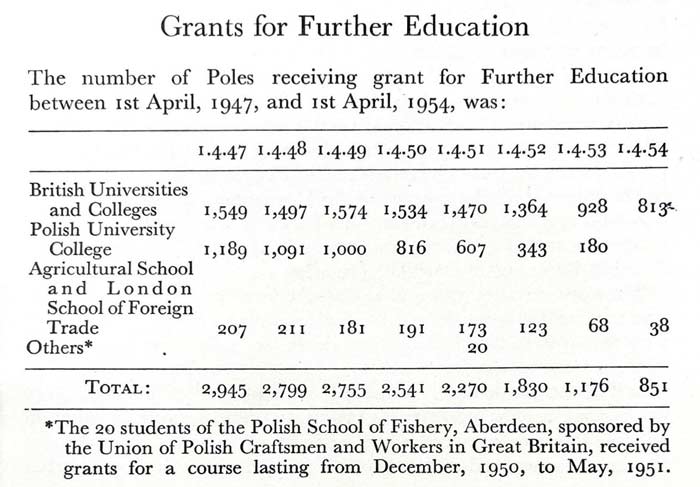
Stanislaw-Joseph Burnas escaped internment in Lithuania and was sent to a concentration camp in Kirov, Russia. He was later able to join the Polish Navy and then the Polish Resettlement Corps, before residing in Balham, London. In his application he writes:
‘this is my last chance. I’m still young and conscious of my abilities and talent and instead of using them I am wasting them moving from one labour to another none of which is suitable for me. My hands and eyes are stagnating in this type of work.’
Stanislaw-Joseph requested funds to study at Saint Martin’s School of Art, where he had been accepted on to the commercial art course. Although the application was rejected, he described himself as an artist in the 1950s. There was a desire to learn, and a clear frustration in these records at having to accept jobs that deskilled Polish migrants, not recognising their existing education, qualifications and expertise.
Life sketches
The series ED 128 contains records relating to the Gater Committee, from general administration to correspondence with other bodies concerned with Polish resettlement. Of particular interest, and at the centre of this cataloguing project, are personal higher education files on awards to students.
Within these files are case papers for education applications of Polish refugees, both successful and unsuccessful, and cases of incomplete courses of study. Some of the applications are in English, some in Polish, and some have a mix.
Included in these files are questionnaires and ‘life sketches’, which provide brief biographies from birth to the moment of application. These often contain accounts of the experiences Polish individuals had throughout the war and beyond, with details of military service, incarceration, deportations and resettlement. Some are quite direct and brief, others are detailed and lengthy. They can be emotional, and starkly factual in recounting the brutality of what they’ve lived through. The variety of experiences are best described through the testimonies and records themselves.
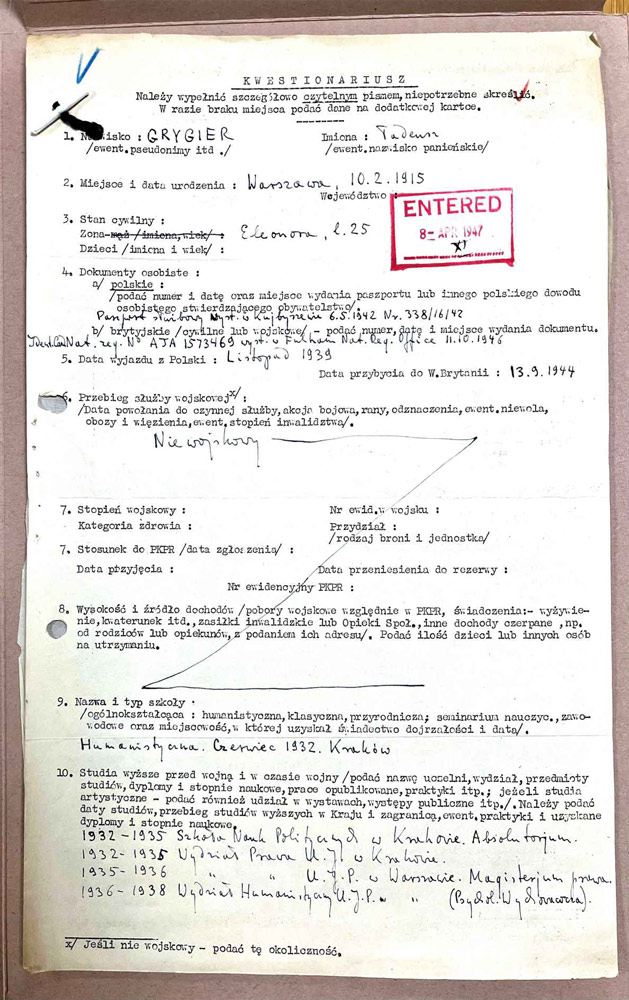
Eminent Polish figures
Scattered throughout the collection are records of eminent Polish figures, such as the application of Polish artist Kazimierz Dźwig. Kazimierz had been drafted into the German army to fight against his mother country. He eventually escaped and after the war was able to study painting in Rome.
Another application is for psychologist Tadeusz Grygier. Tadeusz was a member of the Institute of Criminology in Warsaw up until the war, when he was then deported to Siberia. While still a prisoner, his skills were utilised at the Psychiatric Hospital of the Komi Republic. Once in England, he worked at the Polish Ministry of Information in London, but he wanted to renew his studies. After eight years of residence in the United Kingdom he successfully applied for British citizenship, more information about his later life can be found in his naturalisation personal file.
The biographies accompany standard questionnaire forms, which provide valuable research into the regional impact these individuals had across the UK. Addresses often from hostels and displacement camps, of which there were more than 400, give a socio-economic picture of the time and many Polish communities remain there to this day.
But it’s the ‘ordinary’ voices of that time that carry the legacy of these surviving records. Stories emerge of pre-war family life, resilience in conflict and captivity, hardships in foreign countries and the determination to grasp the opportunity to find ways of retrieving the lost years of their education.
Research advice
There is a huge Polish global diaspora and the traces of this post-Second World War movement can still be seen in communities all over Britain and beyond.
While this is a collection of a small number of individuals compared to the vast number of Polish refugees to settle in Britain, these records still have great potential to support family, social and political history research. You can search the record series by the name of individual. Married names and maiden names are generally included in the files and on the catalogue.
To research Polish experiences in, and after, the Second World War you may also want to consult:
- Passenger lists for displaced individuals who travelled to Britain from other parts of the world beyond Europe before 1960.
- Second World War military service records – which for Polish forces are still held with the Ministry of Defence.
- Naturalisation certificates and papers for Poles who gained British citizenship.
- Records of the Unemployment Assistance Boards on Polish Resettlement, including AST 18.
- Records of the Polish Resettlement Corp in WO 315.
- Research guides to refugee records and internee records.
Intensely human character
The Gater Committee wound up in 1954, having completed what it set out to do:
‘The Committee for the Education of Poles in Great Britain never lost sight of the intensely human character of their work’
Education in Exile, ED 128/10
This can be seen in the human stories that survive. The records show the diversity of Polish refugee stories, the impact on men, women and children of the upheaval of war and the British governments attempts to support these refugees. They give amazing, personal insights into the challenges and opportunities Polish refugees faced in Britain.
We hope to share more from these records soon.
I wish you would do the same as this for the Latvians who came to England. My father, Mintauts Blosfelds was a Latvian and I’d really like to get hold of any documents mentioning him.